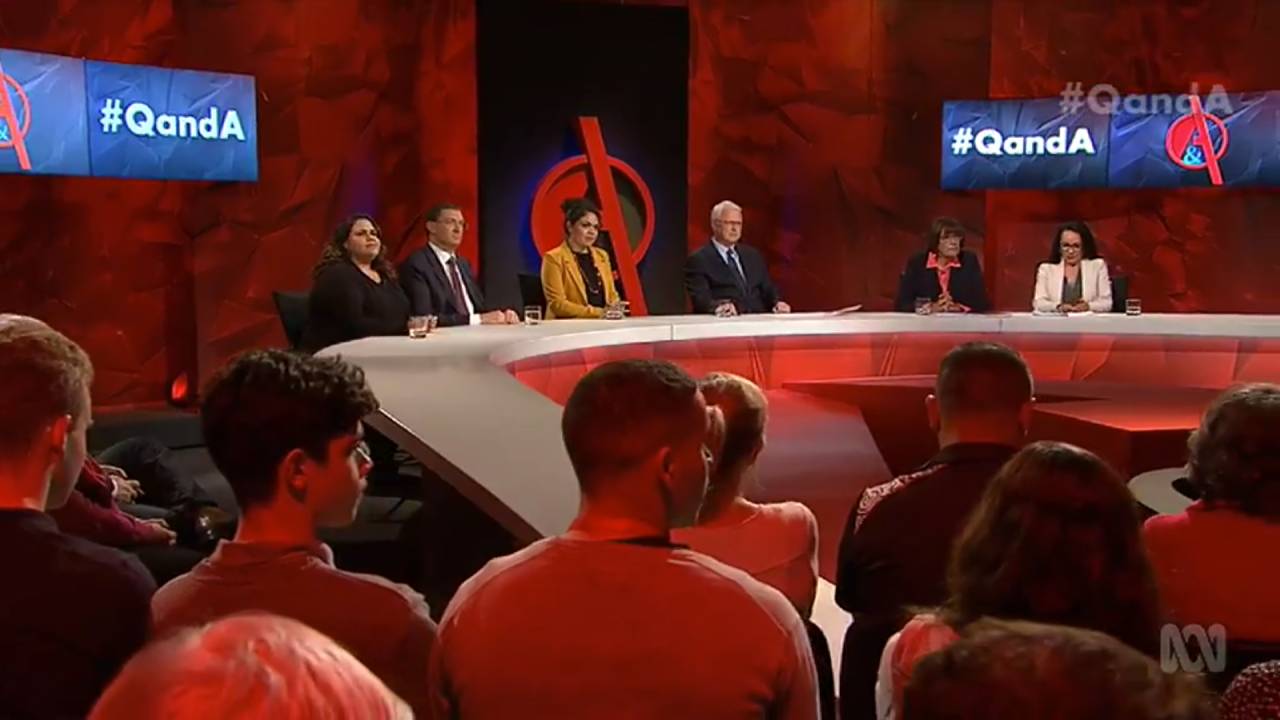During Monday night’s discussion on Q&A, the topic of whether or not Aboriginal people should be recognised in the Australian Constitution was discussed.
At times during the debate, views were sometimes split on whether or not establishing a First Nations Voice that’s enshrined in the Constitution would be effective as well as it being what Aboriginal people want.
Sally Scales was on the panel and is a delegate that helped develop the Uluru Statement of the Heart. She is calling for constitutional recognition and said that she wants to see this implemented, despite statements from the Minister for Indigenous Australians Key Wyatt ruling out the possibility.
“We’ve compromised so much already … so why do we have to keep compromising?” Ms Scales said.
“We put a beautiful statement which was done by about 250-odd First Nations representatives. It was given to the Australian public, not to parliament, not to politicians.
“The law is not the problem around the Uluru statement, I think politics is the problem.”
Jacinta Price, a Liberal candidate for the Northern Territory seat of Lingiari and director of the Indigenous program at the Centre for Independent Studies said that the statement lacks significant detail about how the voice in the Constitution would function and who the Aboriginal representatives would be.
“The media like to portray indigenous people as all having one voice,” she said. “We need to be recognised as individuals as well, that we don’t all think with one head.”
Price also pointed out that there are bureaucracies in place that are voices for Indigenous people.
“If they’re not doing a good job now then how do we know that this voice is going to do that job?”
However, Price agreed with recognising the Aboriginal people as the original inhabitants of the land but having the voice constitutionally enshrined would mean that Aboriginal people would be forever disadvantaged.
“We are Australian citizens and we are often looked at separately to everybody else in this country, it shouldn’t be the case,” she said.
“We want to be part of the fabric of this country like everybody else.”
One audience member named Bill didn’t agree with Price.
“Jacinta, the way you talk, that sounds like a Liberal Government standing behind you and you’re turning around and talking for them,” he said.
“You’re not talking for the rest of the people.”
How can the panel convince Bill that an Indigenous Voice to Parliament would give those in the community a right to be heard, and not just “symbolic representation”? #QandA pic.twitter.com/2p5sTr3HKU
— ABC Q&A (@QandA) August 19, 2019
She was quick to hit back saying:
“Just because my views are probably different to yours, doesn’t mean I can’t think for myself as an Aboriginal woman”.
“I form my own views based on my own lived experience.”
Bill said that he was tired of “symbolic” gestures.
“What I’d like to see is both sides of politics get their act together, start moving the thing along because this is just (taking) too long,” he said.












